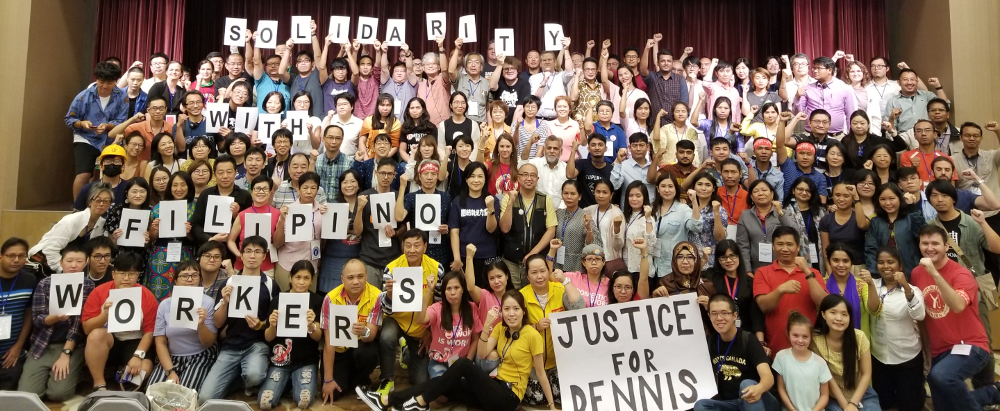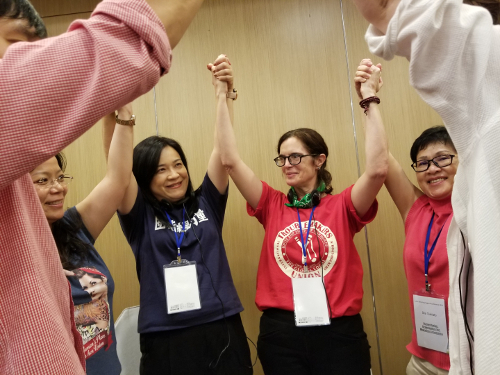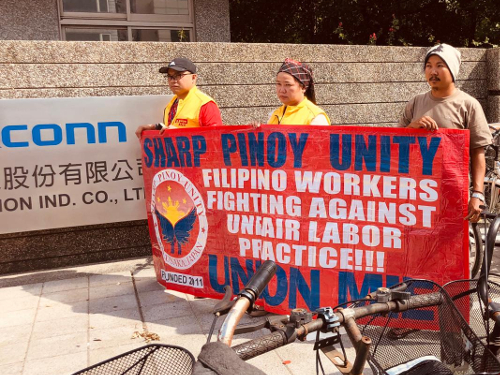The movie I saw at Taichung's Taroko Mall KBro Theaters, "Detention" is a film based on a video
game about the "White Horror" in Taiwan from the time the KMT usurped power in 1947, starting with the "228 Massacre", until neoliberal reforms were made with the ending of martial law in the 80's. The big budget Warner Brothers produced film, with fluent English subtitles, may not be of interest outside Taiwan, except for Japanese that long for the old days in their model colony, and with the exception of Chinese that will pan and ban the film because it criticizes the KMT, their strange bed fellow, their only option in the game of reunification.
Know that the film's dialogue is completely in Mandarin except for a short scene in Ming-Nan dialect with a student holding a puppet. A large percentage, though not the majority of "White Horror" victims, were from the Chinese exodus to Taiwan after WW II. All the teachers in the film were first generation Chinese. Interestingly, the video game is also popular in China, though the follow-up game was banned because of a depiction of Xi Jun-Ping. The film was made last year supported by Taichung's film development department at an abandoned technical school in Ping-Tung.
Know that the film's dialogue is completely in Mandarin except for a short scene in Ming-Nan dialect with a student holding a puppet. A large percentage, though not the majority of "White Horror" victims, were from the Chinese exodus to Taiwan after WW II. All the teachers in the film were first generation Chinese. Interestingly, the video game is also popular in China, though the follow-up game was banned because of a depiction of Xi Jun-Ping. The film was made last year supported by Taichung's film development department at an abandoned technical school in Ping-Tung.
It is a frightening movie; the
monster made out of KMT soldiers and school military guards, guards still present in every school, but without teeth to pull out anyone's teeth. The easing of tension, the pleasant Taiwan chaos, is a cover for domination-shared capitalist ruling class that diffuses and controls its students and citizens with low-paying insecure jobs, no union protection, and no nationhood. The terror is still there when
they want to bring it out but now it is a mind-control instead of a physical
one.
The movie shows how three victims during the "White Horror", when anti-Communism was an excuse for zero-tolerance, breakers of the intellectual law were ratted out
by their wives, colleagues, and classmates. It showed the torture and
disappearance of innocent people that occurred in every day Taiwan life, the marching squads of soldiers with noisy boot-taps, rifle and white helmeted, patrolling every neighborhood, the screams of youth being tortured in police stations, long-hair being sheered involuntarily, the accused being taken away in the middle of the night never to see their families again; that was Taiwan.
It is amazing there is a
video game, played on smartphones by tens of thousands of Taiwanese youth, based on this horror. It is akin to having a
Nazi video game about persecuting and killing Jews; I believe there is one in deep-cover enjoyed by Western youths of fascist leanings. What is one to think: It is okay because it happened in the past and it is over? How lucky we are today in Taiwan that it no longer happens? Revisionist history? Hey, yo, the KMT is still among you, but good guys sometimes wear black; at least they support reunification with the Chinese Mainland. The U.S. CIA is here in full force, its client the new wave DPP of Tsai Ying-Wen, undercutting any errant thoughts on social media, English or Chinese supporting China or insulting the U.S. and Donald Trump.
The moral of the movie is: Live, even if you have to confess to something you did that wasn't wrong. Live, so you can tell those in the future about what happened in the past, the safety of sterility. That has
been done. There are numerous books, TV shows, and magazine articles about the
atrocities perpetrated with the U.S. supported martial law, but U.S. complicity wasn't
mentioned once in the movie. Don't think too much of you'll get something you'll remember.
The KMT has morphed into a legitimate
friendly opposition party in an easy solution of a search for ill-gotten gains. But the tongs still run Taiwan, on both sides, from temples, racketeering, pyramid schemes, and both parties have corruption now, though, individual DPP bureaucrats are perhaps more altruistic in civic matters on the local
level. The movie never advocates revenge or reparations; only acknowledges what
happened and moves on. "Detention" doesn't mention more than it reveals.
Copyright © 2019 by David Barry Temple. All rights reserved



